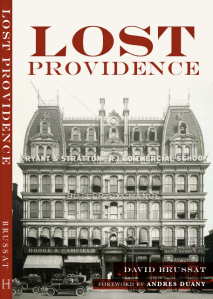As I write I am listening to Beethoven’s Fifth Symphony, played by the Vienna Philharmonic Orchestra. Of all his symphonies, including even my favorite, the Ninth, the Fifth seems to ring most true to Goethe’s description of architecture as “frozen music.” You can hear it building to the epiphany of a skyline of classical towers in old New York City, circa 1930. Invariably, the glory of classical architecture, and it alone, fills the mind and the soul.
Yet I suppose I must admit I was not surprised by “How Beethoven’s 5th Symphony put the classism in classical music,” by Nate Sloan and Charlie Harding in Vox. After noting that its opening notes – Duh duh duh DUHHH – set to music Beethoven’s “progression from struggle to victory as a metaphor for Beethoven’s personal resilience in the face of his oncoming deafness,” they write:
Or rather, that’s long been the popular read among those in power, especially the wealthy white men who embraced Beethoven and turned his symphony into a symbol of their superiority and importance. For some in other groups — women, LGBTQ+ people, people of color — Beethoven’s symphony may be predominantly a reminder of classical music’s history of exclusion and elitism.
Well, I’m glad to read that I am “among those in power”!
But no, I was not surprised that a composition that required genius and perseverance to accomplish now falls under the shadow of theories that consider genius and perseverance as qualities to which only certain people can aspire. Talk about prejudice! The very idea disproves the view that two heads are better than one. It took two writers to achieve such stupidity!
A year and a half after the Fifth premiered in 1808 at Vienna, critic E.T.A. Hoffman described the imagery the symphony conjures up:
Radiant beams shoot through this region’s deep night, and we become aware of gigantic shadows which, rocking back and forth, close in on us and destroy everything within us except the pain of endless longing—a longing in which every pleasure that rose up in jubilant tones sinks and succumbs, and only through this pain, which, while consuming but not destroying love, hope, and joy, tries to burst our breasts with full-voiced harmonies of all the passions, we live on and are captivated beholders of the spirits.
Clearly the critic had a superior imagination. Ernst Theodor Amadeus Hoffman, a German, was the author of fantasy and Gothic horror, a jurist, composer, music critic and artist. Obviously Hoffman was “behaving white” before his time! (That is not my idea; I merely mock and parody the ideas of Messrs. Sloan, Harding and their ilk. Blame them.)
Maybe what Hoffman heard is not what you hear when you listen to the Fifth. That’s not what I hear. I hear beauty and it causes me to feel a heaving of my breast. Maybe a heaving of my breast is just what Hoffman described, translated into less than eighty words. And yet I do not feel that I have misunderstood or failed to appreciate the music.
Indeed, Hoffman himself puts this feeling of mine (superior? inferior?) into words that more directly reflect the listening experience of me and most others who have the pleasure of hearing the Fifth:
How this wonderful composition, in a climax that climbs on and on, leads the listener imperiously forward into the spirit world of the infinite! … No doubt the whole rushes like an ingenious rhapsody past many a man, but the soul of each thoughtful listener is assuredly stirred, deeply and intimately, by a feeling that is none other than that unutterable portentous longing, and until the final chord—indeed, even in the moments that follow it—he will be powerless to step out of that wondrous spirit realm where grief and joy embrace him in the form of sound.
Well, maybe the last bit is a little much. I wish I were powerless to step out of that wondrous spirit realm. Unfortunately, the real world awaits me and everyone else as we exit the concert hall.
So how does all this come to represent “classical music’s history of exclusion and elitism,” as the two authors put it?
They spend much of their essay describing how – apparently from the Fifth’s debut onward, and not before – classical music required concertgoers to refrain from cheering or clapping before the end. Sneezing was verboten. From then on you had to dress up to attend classical concerts. Is this the sum and totality of the exclusion and elitism of classical music? I don’t think so. Today the penguin suit is no longer required. Does that mean that classism has at last been dismissed from classical music?
I could argue that the attire for a rock concert is just as conformist as that of a classical concert used to be. If classical music is to be deplatformed for the sins of Western civilization, then it would seem as if every accomplishment of Western civilization is tainted and must be sacrificed. Is this not, in fact, what many believe today? I would argue, against the perverse doctrine of Harding, Sloan & Co., that the directions to Carnegie Hall remain the same as always: practice, practice, practice. This is open to all who have the sense to ignore the reigning claptrap.
And since the composition of architecture is under the same attack as the architecture of music, the same directions apply: Ignore, ignore, ignore!






David, interesting concept. But as for this quote from your post (“I could argue that the attire for a rock concert is just as conformist as that of a classical concert used to be.”) I am thinking of the possibility of middle ground….Woody Allen’s masterpiece ‘Manhattan’ filmed in B&W with a score by George Gershwin. In the opening credits there is a scene of Yankee Stadium during a night game with the elevated train going by and fireworks in the background. Etched in my mind for 40+ years.
LikeLike
Forgot to mention I think the scene from Manhattan was filmed from the roof of the Bronx County Courthouse another structure worthy of mention if for no other reason as having served as a right centerfield background for Yankee games for decades.
LikeLike
The true irony is that Beethoven was an ardent advocate for republicanism, democracy, and universal human rights. He angrily removed the dedication of his Third Symphony to Napoleon when the latter declared himself Emperor, and his only opera, “Fidelio,” is an inspiring hymn to freedom and justice. There’s no question that the classical music audience has, for centuries, been dominated by the ruling classes, but that is not the fault of the music. The success with which that music has become “popular” in the original sense of that word is a remarkable development. Many of the great artists of recent times emerged from very modest backgrounds but found support from the donor classes that finance the music industry. Things have changed since music was a court activity: I was in Vienna late last year and audiences for classical concerts there run the gamut from designer clothes to black leather. My advice to the authors: open your ears and listen.
LikeLike
You are right about Beethoven’s interest in lauding freedom, Steve, and all the other qualities we associate with Western civilization. These are precisely the qualities that upset our “woke” citizens, who don’t care to hear about, let alone understand, such facts as the democratization of things like classical music, which were once so much more elitist than they are today. The question is whether we can keep to that quest without threatening the quality of artistic endeavor that makes it worthwhile.
LikeLike
Well done.
LikeLike
Thank you very much, Philip.
LikeLike
Yeah I have no respect for any LGBTQ organization……
Their silence during the Andy Ngo beating and Brandon Straka’s assault.
The real reason they hate classical music is relevance. People still listen even after 300 years.
Cardi B…..another flake we’ll forget about in ten years.
LikeLike
Or ten minutes.
LikeLike